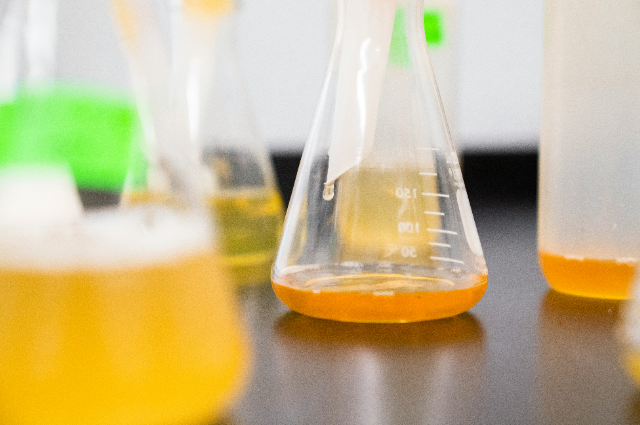
Photo by Ousa Chea on Unsplash
Introduction: The Role of Doubt in Science
In the realm of scientific inquiry, doubt is often seen as a barrier to understanding. However, this perspective overlooks the crucial role that skepticism plays in advancing knowledge. The doubter, far from being an obstacle, is a true man of science. This article explores how doubt fuels inquiry, encourages critical thinking, and ultimately leads to breakthroughs that shape our understanding of the universe.
The Nature of Scientific Inquiry
At its core, science relies on observation, experimentation, and validation of hypotheses. However, the scientific method is not a linear path; it is a complex, iterative process characterized by questioning and revising. Doubt is an integral component of this process. When scientists express skepticism about a theory or experimental results, they are not rejecting knowledge; instead, they are engaging in the very essence of scientific thinking.
Doubt as a Catalyst for Discovery
The history of science is replete with examples where doubt has driven significant discoveries. Take, for instance, the contribution of Galilei. His observations of celestial bodies led him to challenge the prevailing geocentric model of the universe. By doubting established beliefs and advocating for the heliocentric theory, he laid the groundwork for modern astronomy. Galileo’s skepticism exemplifies how questioning accepted norms can lead to revolutionary advancements.
Similarly, Charles Darwin's theory of evolution by natural selection was born from a place of doubt. His observations of diverse species led him to question the static view of life forms. By embracing doubt, Darwin formulated a groundbreaking theory that transformed biology. In both cases, doubt acted as a catalyst for exploration and discovery, highlighting that the doubter is indeed a true man of science.
The Importance of Critical Thinking
Critical thinking is a hallmark of scientific endeavor. It involves analyzing evidence, questioning assumptions, and evaluating the validity of conclusions. A true scientist engages in critical thinking, constantly scrutinizing their findings and those of others. This process of doubt and inquiry fosters an environment where knowledge can flourish.
Consider the realm of medicine. Clinical trials are designed with built-in skepticism; researchers question the efficacy of new treatments by comparing them to existing standards. It is this doubt that ensures that only the most effective and safe treatments reach patients. Without a skeptical approach, the medical community would be less equipped to discern the complexities of human health, leading to potentially harmful practices.
The Double-Edged Sword of Doubt
While doubt is essential for scientific progress, it can also pose challenges. There is a fine line between healthy skepticism and nihilism, where one might question everything to the point of paralysis. This can hinder progress and lead to the rejection of well-supported theories. Therefore, it is vital to strike a balance: to question rigorously while also recognizing the weight of evidence.
Moreover, the rise of misinformation in the digital age has complicated the landscape of doubt. With an overwhelming amount of information available, distinguishing credible sources from pseudoscience requires a discerning eye. A true man of science is equipped with the tools of skepticism to navigate this complexity, promoting evidence-based thinking over conjecture.
The Societal Impact of Scientific Skepticism
The role of doubt in science extends beyond the laboratory; it has profound implications for society. Scientific literacy, bolstered by critical thinking and skepticism, empowers individuals to make informed decisions. In an era marked by climate change, public health crises, and technological advancements, a scientifically literate populace is essential for addressing complex global challenges.
Encouraging doubt in education fosters a generation of critical thinkers who are unafraid to question the status quo. This is particularly relevant in discussions surrounding controversial topics such as vaccines, climate science, and genetic engineering. By embracing skepticism, society can engage in meaningful discourse, leading to better-informed policies and practices.
The Future of Scientific Inquiry
As we look to the future, the role of the doubter in science will only grow in importance. The challenges we face—be it climate change, health pandemics, or technological ethics—demand a rigorous scientific approach that is rooted in skepticism. The ability to question, analyze, and refine ideas is more crucial than ever.
In addition, interdisciplinary collaboration will benefit from a culture of doubt. Bringing together diverse perspectives fosters an environment where assumptions can be challenged, leading to innovative solutions. Scientists, engineers, social scientists, and humanists must all embrace doubt as they work together to tackle the pressing issues of our time.
Doubt in the Age of Innovation
The pace of scientific advancement has accelerated dramatically in recent years, particularly in fields like artificial intelligence, biotechnology, and space exploration. In such rapidly evolving domains, doubt serves as a critical guardrail against reckless innovation. When scientists and engineers question the ethical implications of their work, they are prioritizing societal welfare over unbridled progress. This cautious approach is essential for ensuring that new technologies are developed responsibly and sustainably.
For instance, the rapid development of AI technologies raises questions about bias, privacy, and job displacement. By embracing skepticism, researchers can critically evaluate the societal impact of these innovations. Engaging in thoughtful discourse around these issues allows for the establishment of guidelines and regulations that safeguard public interests, demonstrating that doubt can lead to responsible innovation.

Photo by Elevate on Unsplash
The Challenge of Public Perception
Despite the benefits of skepticism, public perception of doubt can sometimes be negative. In an era dominated by misinformation and anti-scientific sentiments, questioning can be misconstrued as denialism. This underscores the importance of distinguishing between healthy skepticism and ungrounded doubt. Scientists must communicate their doubts and inquiries clearly, emphasizing that skepticism is rooted in a commitment to finding the truth rather than a dismissal of established knowledge.
Public outreach and engagement are crucial in this regard. By actively participating in discussions about science, researchers can demystify the process of inquiry and build trust with the public. Transparent communication about the nature of scientific doubt can foster a more informed citizenry that values evidence-based reasoning.
Conclusion: Celebrating the Doubter in Science
Finally, the doubter is indeed a true man of science. Embracing skepticism is fundamental to the scientific method and essential for driving progress. By questioning the established norms and rigorously evaluating evidence, scientists pave the way for innovation and discovery. As we continue to navigate an increasingly complex world, fostering a culture of doubt will ensure that science remains a beacon of knowledge and understanding.
